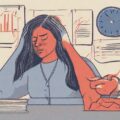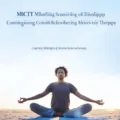Adapting to life after a sudden disability can be a profound challenge. The physical limitations are often accompanied by emotional and psychological hurdles, including depression. Understanding how to navigate these changes is crucial for your mental health and overall well-being. In this article, we’ll explore strategies to handle depression following a sudden disability.
Recognize the Grieving Process
It’s natural to grieve the loss of your previous abilities. Recognizing this process can help you come to terms with your emotions and set the stage for your recovery journey. Allow yourself to feel sadness, anger, or frustration, but also seek to find acceptance as you adjust to your new reality.
Seek Professional Support
Depression is a serious condition that often requires professional intervention. Therapists and counselors specialized in helping individuals with disabilities can provide invaluable support. Cognitive-behavioral therapy (CBT) is particularly effective in treating depression by helping you reframe negative thoughts.
Build a Strong Support Network
Surrounding yourself with a supportive community is essential. Friends, family, and support groups can offer emotional support, practical help, and a sense of belonging. Online support groups and forums can also connect you with people who understand what you’re going through.
Engage in Physical Activity
Physical activity is a powerful tool against depression. Consult with healthcare professionals to find safe and suitable exercises that cater to your new physical condition. Adaptive sports and activities can also be a fun way to improve your mood and physical health.
Focus on What You Can Do
It’s important to focus on your abilities rather than your limitations. Celebrate the small victories and set achievable goals. Engaging in hobbies and activities that you enjoy and are able to do can provide a sense of accomplishment and purpose.
FAQ
How can I prevent depression after becoming disabled?
While it’s not always possible to prevent depression, staying proactive about your mental health, seeking support, and engaging in activities that bring you joy can mitigate the risk. Early intervention is key to preventing a deeper depression.
Are there specific therapies for those who become disabled?
Yes, there are therapeutic approaches tailored to individuals with disabilities, including CBT and occupational therapy. These therapies can help you adapt to your disability and cope with the associated emotional challenges.
Can physical activity really help with depression?
Absolutely. Physical activity releases endorphins, which have mood-boosting effects. It can also contribute to a sense of achievement and improve self-esteem.
How do I find support groups for my specific disability?
Many organizations and hospitals provide resources for finding support groups. Online platforms like social media groups and forums can also be useful in finding communities specific to your disability.
What should I do if I don’t feel like my depression is improving?
If your depression doesn’t seem to be improving, it’s important to consult a healthcare professional. They might suggest altering your treatment plan, trying different therapies, or considering medication.









